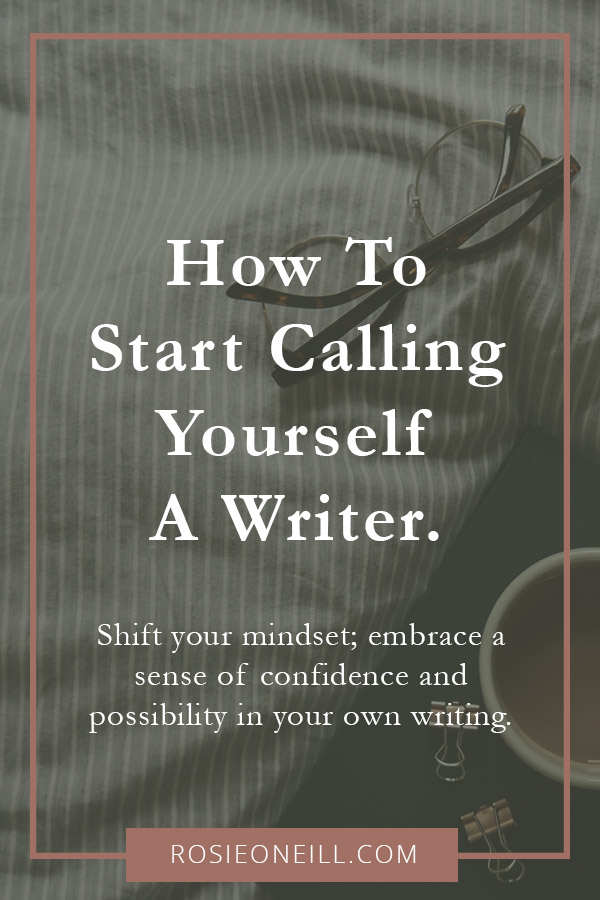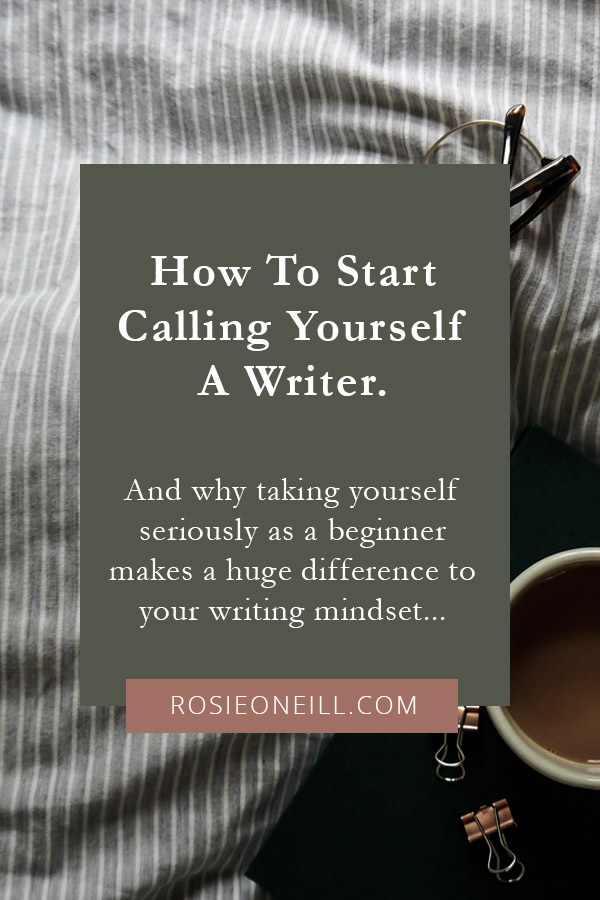How to start taking your writing seriously
When we're taking those early, tentative keystrokes into the world of writing, how do we know when we've earned the right to call ourselves a writer?
It's something I certainly encountered when I was starting out with novel writing, and it's something I keep seeing pop up in conversations online. It seems like we attach a level of expertise or status with the title of writer, which makes it difficult to give it to ourselves when we still feel very much beginners.
This, in turn, makes it hard for us to take our writing seriously.
As creative types (and women, in particular) we're often prone to this unhelpful sense of modesty and self deprecation. We like to downplay the things we're not 100 percent qualified to speak about, as though we need a certificate or a minimum number of words written to be worthy. Instead we call writing a hobby or a sideline, we call ourselves 'aspiring'.
This feeling is formed from a multitude of different doubts and fears; we worry we're not good enough (or never will be), or that nothing will come from our writing. Maybe we even feel guilty, or silly, or frivolous for even having a go. After all, who are we to think we can write? What experience or qualifications prove our right to it?
But here's the thing, when we start taking ourselves seriously, that's when the magic happens. Calling yourself a writer (and eventually calling yourself a writer in front of other people), triggers this internal shift that really lights a fire under your progress and development:
We find it easier to commit to those regular writing sessions; it's much harder to find an excuse if you treat something like it's your job/a non-negotiable. Less procrastination means more writing - which is how you get better.
We give ourselves permission to write; the guilt of spending time on a creative passion project eases up and we can enjoy it more.
Progress is faster and flows more easily. When we approach writing with the right mindset, everything else just falls into place.
We open up those possibilities for ourselves. We start to think, yes, maybe I could write a novel. Maybe I am worthy of investing a bit more energy and time into this, seeing where it could lead for me. Maybe I could write editorially or get published somewhere.
This possibility, this flourishing confidence and sense of your own value is so precious. Taking your writing seriously - taking yourself seriously as a writer - truly allows it, and you, to bloom.
How to start taking your writing seriously:
Call yourself a writer. Yes, it's an internal shift, but you can do some external work to facilitate this. Add writer to your Instagram bio or blog 'about' page, say it out loud to yourself, practise how you'll say it to others.
Commit to a regular writing habit or routine. Carve out that regular time in your schedule where you can just sit and write. Protect that time and start tracking your progress for accountability.
Immerse yourself in learning / educate yourself - read writing blogs and books, start following your favourite writers online, make yourself a part of the writing world.
Make a space online for yourself to be a writer - whether that's an Instagram, Twitter, your own blog, a NaNoWriMo account - join the writing community.
Consider investing in some support. Writing is so much easier when you have people to share the adventure with. You could try: joining a local or online writing group, working with a mentor, taking a class.
With writing you'll always feel, to a certain extent, like a beginner. But remember this: the term writer is not a protected, professional title, like a doctor, and there's no qualification better than the experience of simply writing, and continuing to write.


